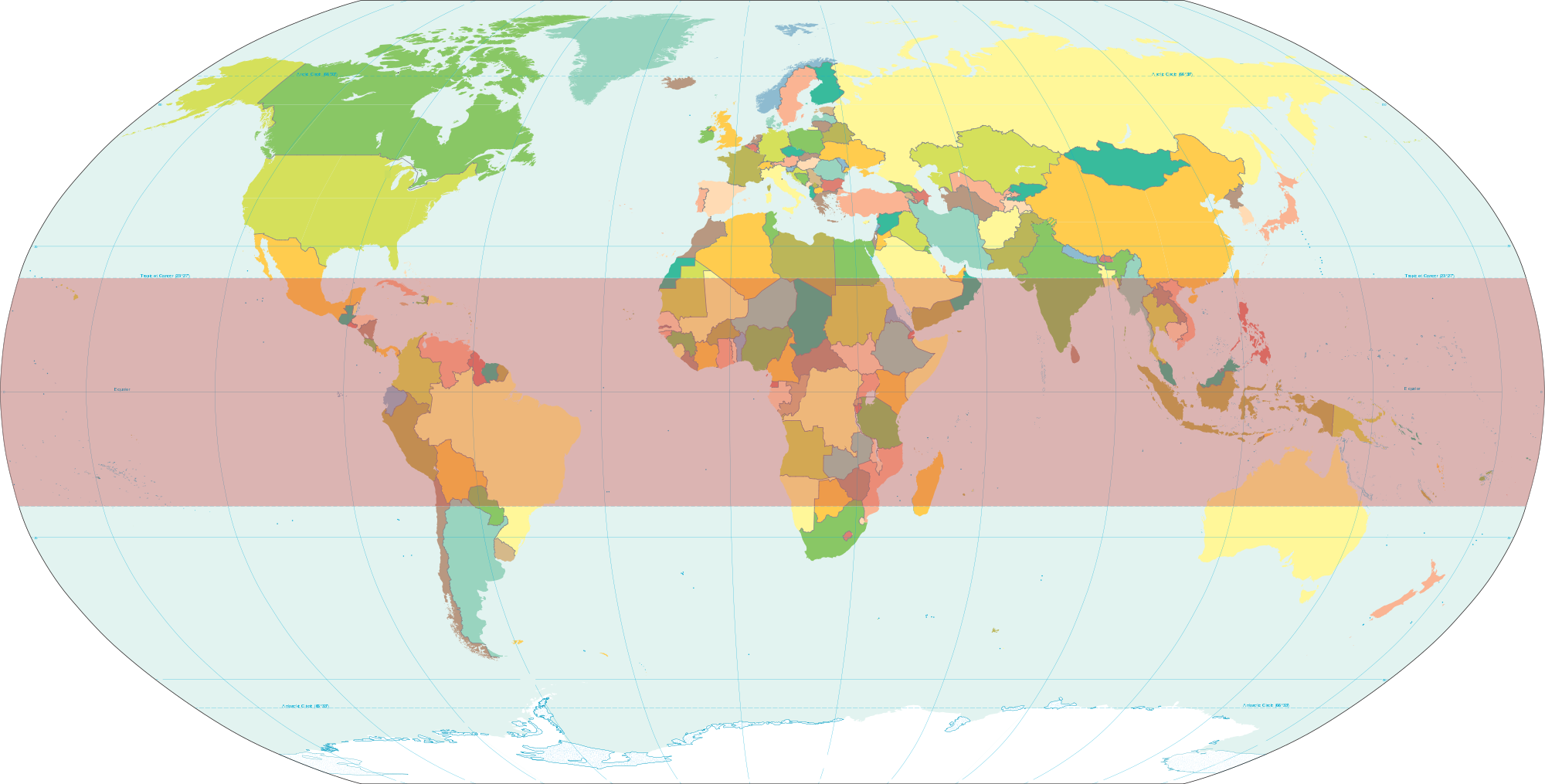Study, diagnosis, treatment, and prevention of certain diseases prevalent in the tropics.
The tropics is a region of the Earth by the Equator. It is limited in latitude by the Tropic of Cancer in the northern hemisphere at approximately 23°26' (23.5°) N and the Tropic of Capricorn in the southern hemisphere at 23°26' (23.5°) S. The tropics are also referred to as the tropical zone and the torrid zone.
The tropics include all the areas on the Earth where the Sun reaches a point directly overhead and a point directly underneath at least once during the solar year. Outside the tropics, the Sun never reaches a point directly overhead or a point directly underneath at any time during the year.
The warmth and humidity of the tropics and the often unsanitary conditions under which so many people in those areas live contribute to the development and dissemination of many infectious diseases and parasitic infestations.
Much has been achieved in combating such typical tropical diseases as yellow fever, amebic dysentery, and filariasis (elephantiasis). Better public health measures and therapeutic agents have assisted in the fight.
The World Health Organization and philanthropic foundations have worked with local and international efforts to bring about medical advances.
The deployment of American troops in malaria-infested regions spurred the search for more efficient synthetic antimalarial drugs. DDT, introduced in World War II to eradicate the malaria-carrying mosquito, has been found to have lingering toxic effects in the environment, and the persistent use of DDT in China for rice pests has produced DDT-resistant mosquitoes that now carry malaria.
Resistance of the malarial parasite to chloroquine and Fansidar, the most widely used drugs for the protection of travelers in the tropics, has made both drugs virtually useless in most of Asia, Africa, and South America. A new drug, mefloquine, is effective in some areas but has many serious side effects. Current research is directed at making a vaccine against malaria.
There have also been advances against hookworm, leprosy, and other tropical maladies. The emergence in central Africa of the Ebola virus, which exists in an as yet unknown host and is fatal to 50—90% of those infected, has been especially challenging to medical personnel in underequipped hospitals where outbreaks have occurred.






0 التعليقات:
إرسال تعليق